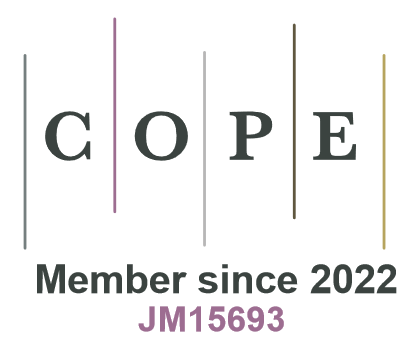Conception of parental investment as a useful explanation of diverse human parental behaviour
DOI:
https://doi.org/10.18778/1898-6773.62.11Abstract
Parental investment is differentiated on prenatal or postnatal stage (e.g., child neglecting, infanticide, or differences in financial support given to children). Differential treatment of children with reference to their sex is influenced by factors such as the sex ratio, parents’ status, number of children in the family, birth order, sex of siblings and children’s contribution to family resources. Numerous studies on traditional and historical societies have been conducted but there is a need for research of contemporary, industrial societies.
Downloads
References
BERECZKEI T., R. I. M. DUNBAR, 1997, Femalebiased reproductive strategies in a Hungarian Gypsy population, Proc. R. Soc. Lond., 264, 17-22
View in Google Scholar
DOI: https://doi.org/10.1098/rspb.1997.0003
BETZIG L., M. BORGERHOFF MULDER, P. TURKE, 1988, Human Reproductive Behaviour. A Darwinian Perspective, Cambridge University Press
View in Google Scholar
BOON J. L., 1988, Parental investment, social subordination and population processes among 15th and 16th-century Portuguese nobility, [in:] BETZIG et al., 201-221
View in Google Scholar
BORGERHOFF MULDER M., 1987, On cultural and reproductive success: Kipsigis evidence, American Anthropologist, 89, 617-634
View in Google Scholar
DOI: https://doi.org/10.1525/aa.1987.89.3.02a00050
BUSS D. M., 1996, Ewolucja pożądania. Strategie doboru seksualnego ludzi, Gdańskie Wydawnictwo Psychologiczne, Gdańsk
View in Google Scholar
CLUTTON-BROCK T. H., 1991, The Evolution of Parental Care, Princeton University Press, Oxford, 8-10, 155-253
View in Google Scholar
DOI: https://doi.org/10.1515/9780691206981
CLUTTON-BROCK T. H., S. D. ALBON, F. E. GUINESS, 1985, Parental investment and sex differences in juvenile mortality in birds and mammals, Nature, 313, 131-133
View in Google Scholar
DOI: https://doi.org/10.1038/313131a0
CRONK L., 1989, Low socio-economic status and female-biased parental investment: The Mukogodo example, American Anthropologist, 91, 414-429
View in Google Scholar
DOI: https://doi.org/10.1525/aa.1989.91.2.02a00090
GAULIN S. J. C., C. J. ROBBINS, 1991, Trivers-Willard effect in contemporary North American society, American Journal of Physical Anthropology, 85, 61-69
View in Google Scholar
DOI: https://doi.org/10.1002/ajpa.1330850108
HARTUNG J., 1982, Polygyny and inheritance of wealth, Current Anthropology, 23, 1-12
View in Google Scholar
DOI: https://doi.org/10.1086/202775
HEWLETT B. S., 1988, Sexual selection and paternal investment among Aka Pygmies, [in:] BETZIG et al., 263-276
View in Google Scholar
HILL K., H. KAPLAN, 1988, Tradeoffs in male and female reproductive strategies among the Ache, [in:] BETZIG et al., 277-305
View in Google Scholar
HRDY S. B., 1990, Sex bias in nature and in history: A late 1980s reexamination of the „Biologicalorigin” argument, Yearbook of Physical Anthropology, 33, 25-37
View in Google Scholar
DOI: https://doi.org/10.1002/ajpa.1330330504
HRDY S. B., D. S. JUDGE, 1993, Darwin and the puzzle of primogeniture, Human Nature, 4, 1-46
View in Google Scholar
DOI: https://doi.org/10.1007/BF02734088
QUIATT D., V. REYNOLDS, 1993, Primate Behaviour, Cambridge University Press, 63-67
View in Google Scholar
RAHMAN M. M., M. KABIR, R. AMIN, 1996, Relationship between survival status of first child and subsequent child death, Journal of Biosocial Science, 28, 185-191
View in Google Scholar
DOI: https://doi.org/10.1017/S0021932000022239
SIEFF D. F., 1990, Explaining biased sex ratios in human population: A critique of recent studies, Current Anthropology, 31, 25-48
View in Google Scholar
DOI: https://doi.org/10.1086/203801
SMITH M. S., B. J KISH, C. B. CRAWFORD, 1987, Inheritance of wealth as human kin investment, Ethology and Sociobiology, 8, 171-182
View in Google Scholar
DOI: https://doi.org/10.1016/0162-3095(87)90042-2
TRIVERS R. L., 1985, Social Evolution, The Benjamin/Cummings Publishing Company, Inc., 271-300
View in Google Scholar
TRIVERS R. L., D. E. WILLARD, 1973, Natural selection of parental ability to vary the sex ratio of offspring, Science, 179, 90-92
View in Google Scholar
DOI: https://doi.org/10.1126/science.179.4068.90
VINING D. R., 1986, Social versus reproductive success: The central theoretical problem of human sociobiology, The Behavioral and Brain Sciences, 9, 167-216
View in Google Scholar
DOI: https://doi.org/10.1017/S0140525X00021968
VOLAND E., 1988, Differential infant and child mortality in evolutionary perspective: Data from late 17th to 19th century Ostfriesland (Germany), [in:] BETZIG et al., 253-261
View in Google Scholar
VOLAND E., R. I. M. DUNBAR, 1995, Resource competition and reproduction. The relationship between economic and parental strategies in the Krummhörn population (1720-1874), Human Nature, 6, 33-49
View in Google Scholar
DOI: https://doi.org/10.1007/BF02734134
VOLAND E., E. SIEGELKOW, C. ENGEL, 1991, Cost/benefit oriented parental investment by high status families. The Krummhörn case, Ethology and Sociobiology, 12, 105-118
View in Google Scholar
DOI: https://doi.org/10.1016/0162-3095(91)90016-J
Downloads
Published
How to Cite
Issue
Section
License

This work is licensed under a Creative Commons Attribution-NonCommercial-NoDerivatives 4.0 International License.








